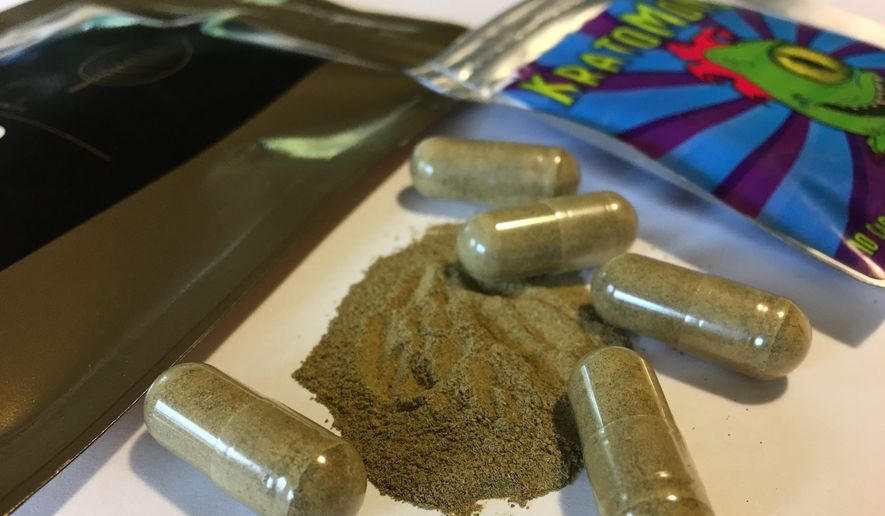The Food and Drug Administration announced Tuesday it had issued warning letters to three companies to stop the illegal sale and market of kratom powder as a treatment for opioid addiction and withdrawal. The herbal supplement is celebrated by advocates for its pain-reliving properties but cautioned by authorities as a dangerous and addictive drug.
The notices follow ongoing action by the agency to stem a salmonella outbreak linked to the herbal powder. As of April 5, the Centers for Disease Control and Prevention found 132 salmonella cases linked to kratom across 38 states, with 38 hospitalizations.
The FDA, calling kratom sales “health fraud scams,” said that the drug — while not federally illegal — is making unproven claims about various diseases.
“Despite our warnings that no kratom product is safe, we continue to find companies selling kratom and doing so with deceptive medical claims for which there’s no reliable scientific proof to support their use,” FDA Commissioner Dr. Scott Gottlieb said in a statement. “As we work to combat the opioid epidemic, we cannot allow unscrupulous vendors to take advantage of consumers by selling products with unsubstantiated claims that they can treat opioid addiction.”
The three companies include Front Range Kratom of Aurora, Colorado; Kratom Spot of Irvine, California and Revibe Inc., of Kansas City, Missouri.
The FDA said there is little to no rigorous scientific evidence that supports health claims posted by the companies on their websites and social media, which include that the drug can help with opioid addiction, that it lowers blood pressure, relieves pain, boots metabolism, increases sexual energy, improves the immune system, prevents diabetes, eases anxiety, eliminates stress and induces healthy sleep.
Native to southeast Asia, kratom is made from the leaves of the tree Mitragyna speciosa. Dried and ground to a fine powder, the product is shipped into the U.S. and sold either in powder form or divided into tiny capsules. Users can dissolved the powder in water and drink it as a tea or take the substance dry.
Passionate advocates say it is an all-natural remedy providing energy and pain relief, a needed substance for America’s ongoing opioid epidemic.
Yet federal health officials are wary of the drug, which is known to activate opioid receptors. The FDA has earlier said it is aware of 44 deaths in which kratom was present in the dead persons’ bodies.
“Far from treating addiction, we’ve determined that kratom is an opioid analogue that may actually contribute to the opioid epidemic and puts patients at risk of serious side effects,” Dr. Gottlieb said.
The FDA has given the three companies 15 days to respond to the letters, directing them to inform the agency of specific actions taken to address federal concerns and without proper communication, could result in law enforcement action such as seizure or injunction.
It is the first time the agency has sent letters of warning to kratom suppliers. Last month, the FDA issued its first ever mandatory recall, telling kratom supplier Triangle Pharmanaturals LLC of Las Vegas, to warn its customers and take back products suspected of salmonella contamination.
Typically, the FDA will notify companies if a problem with their product is discovered and presents a public health risk. It gives companies the opportunity to issue a voluntary recall, taking responsibility and showing transparency.
The mandatory recall, however, is done when a company refuses to take steps themselves to comply with federal recommendations.
The agency also said they had earlier worked with Revibe of Kansas City to destroy products believed to be contaminated with salmonella, yet the company has failed to tell the FDA it has recalled distributed products.
• Laura Kelly can be reached at lkelly@washingtontimes.com.




Please read our comment policy before commenting.